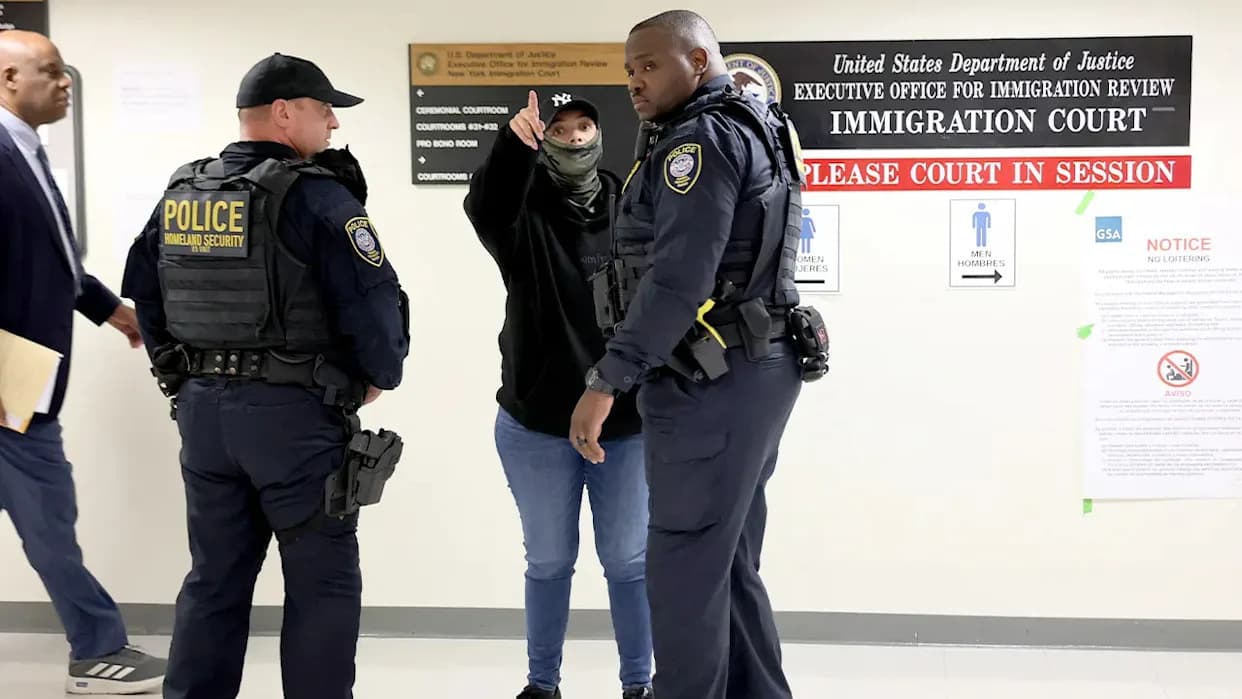The 7th Circuit temporarily blocked Judge Sara Ellis’s Nov. 6 injunction limiting how federal immigration agents may use force in Chicago, saying the order was overly detailed and risked exceeding judicial authority. The three-judge panel granted the administration’s emergency stay while it reviews the broader appeal and the factual record. The appeals court stressed the pause is temporary and left open the possibility of a narrower injunction addressing the plaintiffs’ constitutional claims.
7th Circuit Pauses Chicago Injunction Restricting Federal Agents’ Use of Force

A federal appeals panel on Wednesday granted the Trump administration’s emergency request to temporarily block a Chicago district judge’s order that sharply limited how federal immigration officers may use force in the city. The 7th Circuit said the lower-court injunction was overly prescriptive and risked infringing on the separation of powers between the judiciary and the executive branch.
What the appeals court said
A three-judge panel put Judge Sara Ellis’s Nov. 6 order on hold while it considers the government’s broader appeal. The panel described the injunction as detailed enough to resemble federal regulation and said it swept in an unusually broad range of defendants, including senior officials and entire departments.
“The district court’s order enjoins an expansive range of defendants, including the President of the United States, the entire Departments of Homeland Security and Justice, and anyone acting in concert with them,” the panel wrote.
What Judge Ellis ordered
Ellis’s order had barred several tactics — including pulling or shoving — required agents to give warnings before deploying tear gas or similar riot-control measures, and mandated that nearly all agents display clear identification and wear body cameras. The judge also directed the government to produce extensive use-of-force logs and related internal records.
Why the order was challenged
Plaintiffs’ lawyers told the court that federal officers in Chicago had for months used chemical agents and other crowd-control measures without adequate warning, sometimes affecting clergy members and reporters. The administration argued it needed broad authority to confront protesters it said were violently obstructing immigration operations.
Disputed facts and courtroom tension
Judge Ellis has at times sharply criticized federal attorneys and ICE officials in open court, questioning the credibility of some government statements. She singled out an incident involving Border Patrol agent Greg Bovino, saying video evidence did not support the government’s claim that Bovino had been struck in the head by a rock and that Bovino had admitted to lying about the event.
Temporary nature and next steps
The appeals panel emphasized that its stay is temporary and cautioned against reading too much into the decision. The judges noted they will review a detailed factual record and left open the possibility that a narrower, more tailored preliminary injunction could be entered to directly address the plaintiffs’ First and Fourth Amendment claims.
The case arrives amid a broader legal battle over a national immigration operation that has prompted lawsuits from protesters, detainees and local governments in multiple states as federal agents have been deployed to several cities.
Help us improve.




























